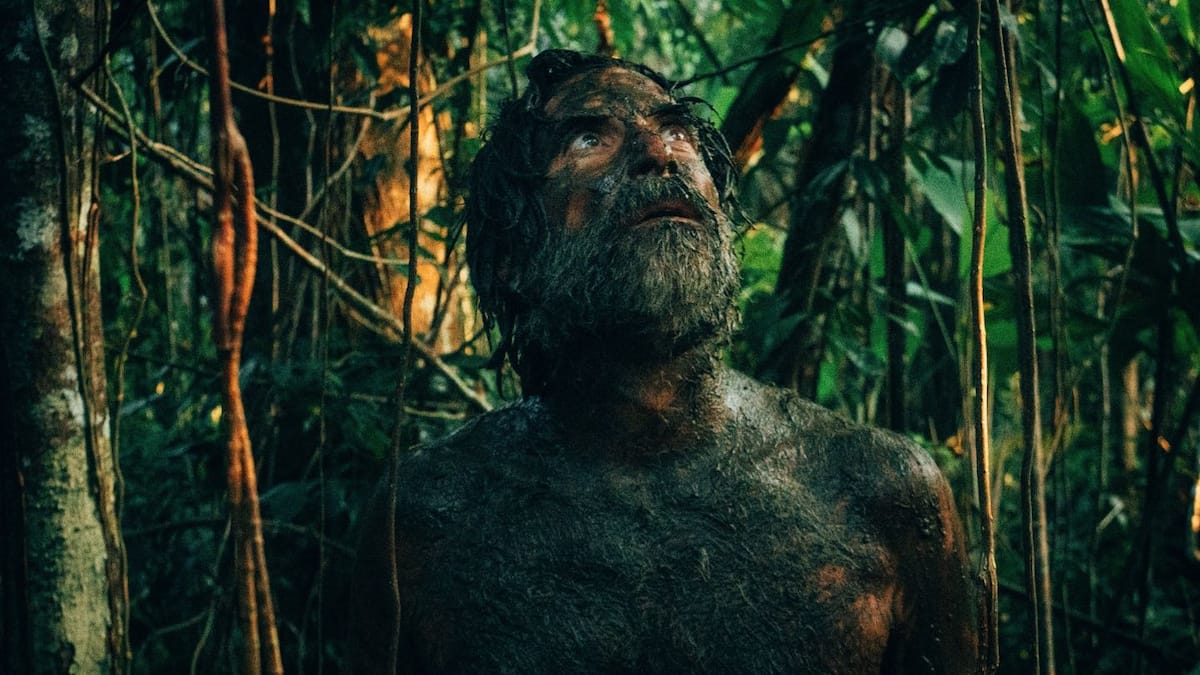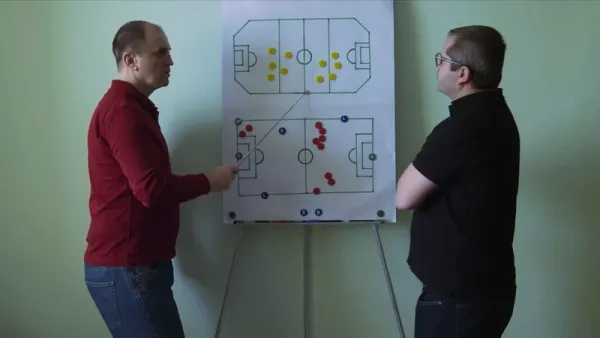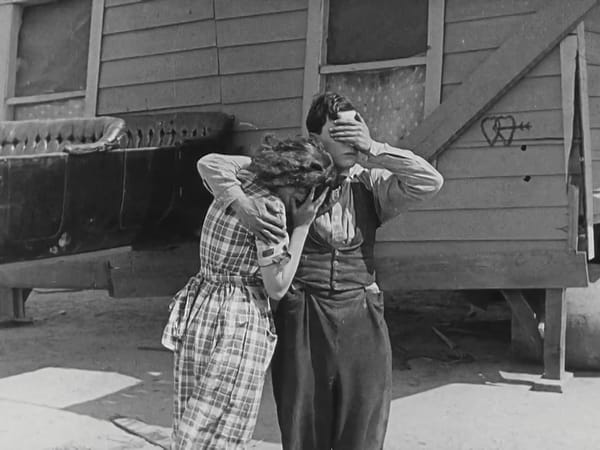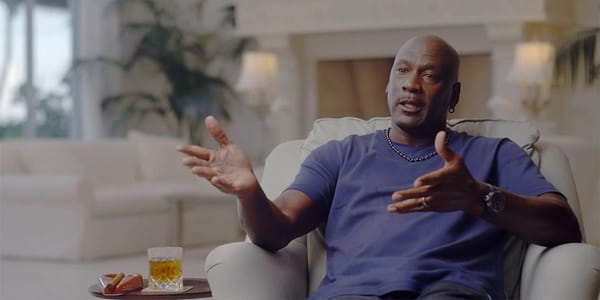‘Making a movie is life’

What really makes cinema 'personal'?
It might be easier to celebrate the fact that blockbusters are no longer directed by white men who all look the same, if the companies that could still afford to make them were not soul-crushing corporations essentially using identity politics to legitimise their content soup. Hired to direct films that are marketed as being somehow connected to their background and identity, these filmmakers are not simply directing a big movie that will make a lot of money — they are asked to give it a little piece of their soul, too. And they are also expected to say “thank you,” because, well, representation.
Besides corporations’ mercenary appropriation and distortion of identity politics — which of course has done a lot of good in other contexts, in terms of giving marginalised voices the opportunities to be heard that they always deserved — this situation also highlights an oddly straightforward, simplistic and limiting conception of the way artists supposedly relate to the art they make. This idea of what makes art personal appears all the more troubling when the art in question barely qualifies as art at all.
In such cases indeed, it seems that what makes the connection between a filmmaker and their content “personal” is simply a shared background or ethnicity between director and characters. This is of course absolutely fair enough when said background comes with an entire world and experience that might be best transferred to the screen by a filmmaker who had gone through a similar experience. But when the character in question is a superhero, an alien, or an anthropomorphised animal, that “personal” connection feels a lot more tenuous.
Venezuelan director Jorge Thielen Armand collapses the question and raises new ones in his 2020 film La Fortaleza. The film is a work of fiction, an atmospheric and intoxicating experience largely set in the jungle, following in the footsteps of a man driven by both resolve and alcohol to self-destruction and salvation. A simple viewing does not reveal anything about the fact that the film’s lead actor is in fact the father of the director, playing himself in a restaging of his own real-life adventures in the jungle some thirty years prior.
“All this personal stuff behind the movie, it's more for me,” Armand explains. “That's why it doesn't say ‘based on a true story’ at the beginning.” Maybe filmmakers who direct very personal fiction films about and starring their own family members but don’t make that the entire point of their work are everywhere and we just don’t know it, but it seems unlikely.
Armand’s film is, indeed, very meta, and some could say that it “blurs the boundary between fiction and documentary.” But the fact that this firm basis in reality is not at all the point of the film or brought forward within its diegesis in any way lends it to a much deeper reflection on the relationship between life and cinema than the creepy thought (and life!) experiments of much creative documentary today. La Fortaleza is a great film whether you know about the circumstances of its making or not — the reflection on art and life that it brings up lies well outside of the film itself, in the context of its creation and therefore in the mind and heart of its director. What does Armand’s decision to make a film with and about his father, but without disclosing its direct relationship to their personal lives, say about the director’s conception of art and cinema?
Fortunately, another film does offer us a glimpse into said mind and heart. Directed by Mo Scarpelli — Armand’s partner — El Father Plays Himself could crudely be described as a making-of documentary, exposing all of the offscreen interpersonal dynamics behind La Fortaleza. But what is most striking at first glance in the documentary is, in fact, just how unreadable Armand’s face often is, even during the most dramatic moments of a sometimes tricky production. His father, as it turns out, is a man who drinks, a habit which sometimes comes to interrupt or delay the filming schedule; yet like the captain of a ship in distress, Armand remains stoic and calm, focused on the solutions rather than on the problems. It takes Scarpelli’s sharp eye — and indeed, in yet another intertwining of life and cinema, her knowledge of Armand as a complete human being — to see through the facade and excavate from Armand’s interactions on set and beyond subtle cues about his state of mind, intentions and goals.
As the director strives to keep the production going despite the often erratic behaviour of his lead actor, what is revealed is an unmistakable desire to make something out of the tough things of life. “For me, film is a way to get into trouble, to have an adventure,” Armand confirms to me (he does not say this in Scarpelli’s film; read more about why she always asks her subject not to look at or talk to the camera in our free Patreon post). But while he makes use of his father’s drinking habit in the film — when the character is drunk, so is the “actor” “playing” him — neither the intention nor the end result is exploitative. “This was a unique opportunity for me to do something with my dad, and I got to spend some time with him and turn something that we see as negative into something positive,” he adds. “I wanted to explore those things, the pain that was there, and capture what was going on in the jungle at the time.”
La Fortaleza could be seen cynically as a successful attempt to make a good film out of a fraught, painful situation. But this is not what Armand means when he talks about turning something negative into something positive. The entire experience was designed not as a mercenary way to put his father’s addiction to creative use, but as an opportunity to spend some time with him in a way that might help them both face some uncomfortable truths and deal with long-lasting issues.
The character in La Fortaleza, written by Armand and based on what he knew of his father, is a man who isn’t simply struggling with alcohol, but with a generally escapist mindset that makes him flee whenever a situation becomes too heavy, either literally or by finding refuge in drinking. El Father Plays Himself reveals that these issues are also very much those of the real father, and the documentary almost feels at times like just another version of La Fortaleza, only shot in a slightly different style and with a few more characters (the crew). The father sometimes gets impatient with the rhythm of the shoot, repeatedly fails to be up and ready on time in the morning, and even at one point makes a scene and refuses to go to set.
As we spend more time with him and the rest of the crew seen in Scarpelli’s film, our initial shock soon makes way for the realisation that these outbursts come from some deep rooted issues. Armand explains that despite always being game for whatever he suggested, his father did also have moments of doubts and fears. “The fact that I didn’t give him the script created a lot of anxiety, because he didn't know what we were going to be filming the next day or the next hour. Some days, he would say, ‘That's great! It's a surprise every day, it's fun.’ But then other days, he would think ‘nobody is going to come and get me’ and he would become paranoid.” Rather than exploit his father, it becomes clear that what Armand is doing is giving him the gift of patience. “Some of us — myself included — with some family members, we kind of give up,” Scarpelli says. “We think there's no way to talk about these issues, because every time we try, we fight… But Jorge proved to me that that's not true. He uses cinema to surpass that.” Indeed, the ending of El Father Plays Himself echoes that of La Fortaleza, with father and son better able to open up to each other in both the fiction feature and the documentary. “They went through the fire together,” Scarpelli explains, “they came out the other side, and they ended up in a totally different relationship.”
The set of La Fortaleza could indeed be described as a safe space for Armand and his father to explore not only a dramatic period of his past, but also their relationship with one another. As is clear in the documentary, and as Scarpelli puts it, “Jorge stays silent to try to get what he wants. They have this power struggle that exists between actor and director too. They could manage it better as actor and director, than as father and son.” In forcing them to communicate and work together despite all the history between them, the film encouraged in both the patience to try and understand one another.
For Armand, making a film was also a way to engage with his father in a way that he knew would be appealing to him on some level. “My dad is not a typical father,” he says, describing a childhood that frequently included dangerous or extreme activities, such as walking around the dangerous city of Caracas at three in the morning, going to the jungle, or riding a motorcycle at ridiculous speeds. “He has never been someone who can turn down a challenge,” Armand adds, “and when I told him, ‘Hey, I have this project, and with it, we can go together to the jungle again and do this crazy thing,’ he was like, ‘yeah, I'll do that!’”
But of course, playing yourself on camera isn’t exactly like driving a motorcycle very fast or moving to the jungle — besides being an impressive feat, it also involves a brutal reckoning with yourself. Watching Scarpelli’s documentary, as evident as the father’s problems with alcohol and his escapist tendencies, are his bravery and his unflinching desire “to do this thing that many people won't even touch, which is to face yourself,” as Scarpelli puts it. Perhaps the father also recognised this aspect of the project as a valid reason for him to do it — even when he was clearly suffering, even when he got drunk for two days straight, Armand’s father never gave up or left the project.
For Armand, meanwhile, making a film with and about his father was only the most natural thing in the world. On a basic level, he explains that he has so far only done films with non professional actors because the stories they told were inspired by those people, and he simply “couldn't think of someone better to play them.” But of course, the mere concept of making films about people you know, and in such a direct way — without going through metaphor or transposition to fiction — implies a very particular definition of cinema, its power and its function, at least for the filmmaker. Armand puts it plainly: “Making a movie is life.” For him, the way his films and his life are intertwined is something that makes him “feel very alive:” “I feel very full of the whole thing, while I’m making these movies… For me, as a person, it fills me so much.”
Cinema for Armand is not separate from life, and he does not have to bend himself into shape to prove that his work and his life are connected; they just are. His films are documents, traces of moments that, thanks to the films, “will never leave my life.” But to the audience, La Fortaleza is, for all intents and purposes, fictional. Armand is not interested in making viewers aware of his films’ connection to his life. He is not interested in the line between fiction and reality, but rather uses fiction to experience and uncover reality.
So what does he make of his partner’s documentary? “For me, it's another document of that experience; it's part of that album, of that thing that I live for.” Made by a person who was closely involved not just with the making of La Fortaleza, but in the very lives of its director and subject, El Father Plays Himself is another creation born out of the experience of making the film. But it is also another work fundamentally not interested in studying, exposing or worrying about what is fiction and what is real. Both films take for granted the bias that is after all inherent to all filmmaking, and find ways to move beyond that question to explore more interesting horizons.
Supposedly thorny questions around subjectivity and objectivity in filmmaking plague fiction and documentary filmmaking today in different but related ways. In the former, a superficial biographical connection to the work — a mark of avowed subjectivity — is seen as proof that the film represents a touching bearing of the soul for its director. This perception precludes criticism: if a film is the reflection of someone’s subjective experience, who are we to undermine it? How could we criticise it without insulting its maker? This kind of self-righteousness is perhaps even more flagrant in documentaries, where filmmakers likewise emphasise the (inherent, obvious) subjective quality of filmmaking in order to better excuse their exploitative, patronising treatment of their subjects, their blinkered views, or their creative ellipses.
In both cases, the subjective, the personal experience, the individual, is a lazy shield against criticism. But perhaps equally harmful is the way it so often acts as a shortcut for “interesting.” Too many works of fiction and documentary are now merely cool stories, deemed valid works of cinema simply because they are (more or less) intimately related to the (valid) experience of their makers. It isn’t that each one of us will get our 15 minutes of fame — today, we deserve them, and they should be feature-length presentations, or eight-part mini-series.
La Fortaleza and, to some extent but in a slightly different way, El Father Plays Himself, represent a cinema that finds its richness in a genuine and intimate connection to the personal experience of its makers, but without reducing cinema to a confessional. Its goals and ambitions lie elsewhere: “I hope that the movies that I'm making, and the movies that I like, are the ones that throw out a lot of questions,” Armand says. Should filmmakers only make films about people they already know? Does every film have to be so closely intertwined with real life? Of course not, but pretending that they all already are makes us blind to those that truly are, and to the other possibilities of cinema.




